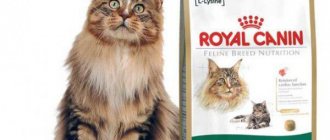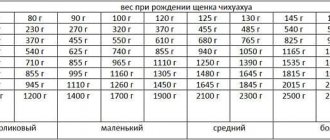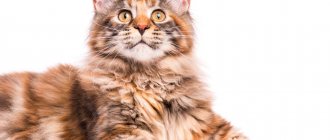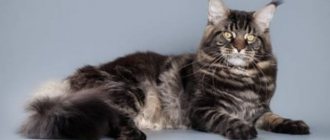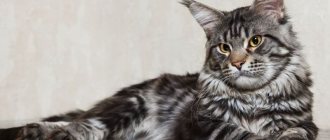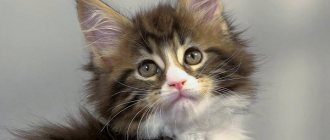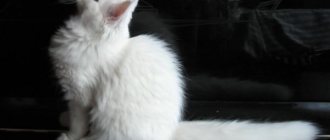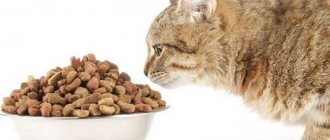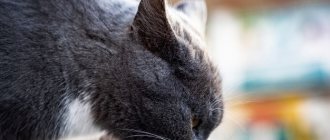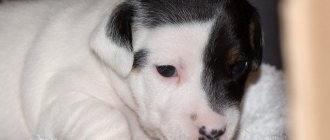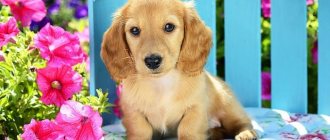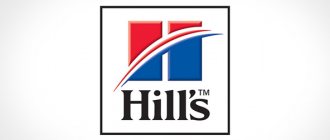Maine Coons differ from many purebred cats in their greater weight and size, so to maintain the health of the animal and the beautiful appearance of its rich fur, you need to choose the right diet.
The diet can consist of natural products or specialized food for regular, spayed or neutered Maine Coons. It is also important to first familiarize yourself with the list of foods that should not be fed to pets, the nutritional habits of small kittens and pregnant cats.
Content
- Basics of a healthy diet
- Natural nutrition Healthy food
- Junk food
- Balanced composition and daily requirement
- "Kunya porridge"
- Dry food
- Age factor
- Feeding with natural products
Dry and wet food
For any cat owner, an important issue is choosing the right food. It is desirable that it be from a premium line of manufacturers. They have a high meat content and other useful additives. In addition, they have other advantages:
- easy to use;
- are stored for a long time;
- have enough calories;
The main disadvantage of such feeds is their price. The economy segment is much cheaper, but they do not contain enough meat, a high content of offal or meat of extremely low quality. About 80% of the mass is occupied by cereals and vegetables. A cat that consumes such food does not receive the substances it needs. Long-term consumption of cheap food can cause diseases of the digestive system, kidneys, and urinary system.
Dry food.
Food for coons can be divided into several types:
- Holistic. A professional food that veterinarians usually recommend for cats with health problems.
- Super premium. Balanced food made from the highest quality raw materials with a high meat content.
- Premium Healthy food made from good quality ingredients.
- Economy The cheapest food. Can cause watery eyes, digestive disorders and other health problems.
Now a number of manufacturers offer specialized food for their owners. They are produced keeping in mind the body weight and size of this cat breed. Many manufacturers choose wet food for their pets. They come in various forms:
- mousses;
- pates;
- nuggets.
Such food can be combined with natural food. The package is designed for one meal. They also contain a sufficient amount of water. If the cat does not eat the entire portion in one meal, the leftovers will have to be thrown in the trash, as they quickly deteriorate in the air. Eating spoiled food is extremely dangerous to the health of the animal.
Wet food for Maine Coon.
If you calculate natural nutrition, which includes meat and a sufficient amount of vegetables, its cost will be comparable to feed from the premium and super premium segments. However, the owner will not waste his time and effort on preparing it.
To make a good diet, you need to cut the meat into cubes, grate the vegetables, and cook them. After eating you need to wash the dishes. There are no worries with ready-made food. Dry ready-made food does not spoil and has a very long shelf life.
Good quality food from well-known manufacturers has a balanced composition that contains everything you need.
But there are also some disadvantages:
- The exact composition of the finished feed is not known, especially from the lower price segment;
- the possibility of allergic reactions to some ingredients;
- meat is often replaced with offal or low quality meat (chicken);
- destruction of vitamins due to high production temperatures;
- presence of preservatives, emulsifiers;
- violation of storage conditions during transportation or in a store warehouse.
Veterinarians do not have a consensus on what type of feeding should be chosen. Each owner determines this independently for his pet. You should not frequently change the type of food and brands, as this can cause problems with the animal’s digestion.
Combined nutrition
It depends on what you mean by mixed nutrition. If this is a combination of ready-made food and natural food, then this is not recommended. Mixing these types of feed can result in an unbalanced diet. As a result of mixing, the daily intake of nutrients and calories can be increased or decreased. You can mix dry food and wet food, the main thing is that this combination has the entire range of nutrients, minerals, and vitamins.
Kitten food
Maine Coon kittens need special care and nutrition. While they are small, the mother takes on this responsibility. Typically, kittens are taken from the nursery at an age when they can eat normal food. But even in this case, their food differs from the diet of an adult cat, since the body of a small kitten grows and develops intensively. The nutrition of an animal directly depends on the age of the animal and as it grows, it changes significantly.
Diet in the first month
Feeding a kitten begins after 21 days from its birth. The main task of a person is to accustom a kitten to new foods. It is necessary to gradually include meat and vegetables in the diet. Breeders who professionally breed Maine Coons usually choose ready-made food. At this stage, the kitten is still feeding on its mother's milk.
Basics of a healthy diet
The main principle that cannot be neglected: food prepared for family members is not suitable for feeding a four-legged friend!
This is due to:
- characteristics of the animal’s digestive system;
- a specific set of enzymes;
- the difference in vitamin-mineral, energy needs of the human and cat body.
Food “from the table” is poorly digested by pets, causing gastrointestinal disorders, liver and kidney diseases, and developmental disorders.
Before creating a diet for your ward, you should choose one of two feeding options. Suitable daily menu:
- Natural food prepared taking into account the physiological characteristics of the animal. The main ingredient in cat dishes is lean meat.
- Ready food. It has a balanced composition and is available in dry and wet form. Sold in pet stores and special departments of supermarkets.
Proper nutrition contributes to:
- normal formation of the skeleton and muscular system;
- good condition of teeth, claws, coat;
- strengthening immunity, preventing diseases;
- establishing contact with the owner;
- increasing life expectancy.
Diet for older cats
The diet of an older cat is different from that of an adult cat. Nutrition should be adjusted:
- 40% protein food;
- 15-30% fat;
- up to 5% fiber;
- no more than 20% carbohydrate foods.
Carbohydrate food is not necessary for coons. They produce a sufficient amount of special enzymes that are required to digest proteins.
Natural nutrition
You can feed a Maine Coon with natural food only if the owner has time to prepare special dishes.
Healthy food
The table provides a list of foods that should be included in the Maine Coon’s diet:
| The product's name | Useful composition | Feeding features |
| Meat: beef, chicken, turkey (without skin), rabbit, lamb (lean), horse meat. | Proteins (16–20%); vitamins A, D, E, H, PP, group B; calcium, magnesium, potassium, sodium, phosphorus, iron, chlorine. | You can give it boiled or raw, after keeping it in the freezer for 3-5 days. Sometimes it is allowed to diversify the menu with low-fat meat broth. |
| By-products: liver (in small quantities), heart, tripe, udder, stomach. | Proteins; vitamins A, E, PP, group B; calcium, magnesium, potassium, iron, copper, zinc. | Served boiled. |
| Vegetables: carrots, zucchini, pumpkin, cauliflower. | Vitamins A, B1, B2, C, D, E, K, PP; calcium, magnesium, phosphorus, potassium, sodium, iron, manganese, copper, zinc. | Can be given raw, boiled, baked. |
| Greens: parsley, dill, lettuce. | Vitamins A, B1, B2, C, E, K, PP; calcium, potassium, phosphorus, iron. | Add to meat and vegetable dishes. |
| Porridge: oatmeal, rice, buckwheat. | Vitamins B, E, K, PP; calcium, phosphorus, potassium, magnesium, sodium, sulfur, iron, zinc. | Serve porridges cooked in water or low-fat meat broth with finely chopped meat and fresh herbs. |
| Sea fish: hake, pollock, lemonema, etc. | Proteins; vitamins A, B, C, D, E, K; phosphorus, potassium, sodium, magnesium, calcium, iron, sulfur, chlorine, manganese, copper, iodine, zinc, fluorine. | Offer boiled no more than 1-2 times a week. |
| Eggs: chicken, quail. | Proteins; vitamins A, groups B, D, E, K, PP; calcium, potassium, magnesium, sodium, phosphorus, iron, copper, manganese, selenium, zinc. | Serve chicken eggs (yolks) hard-boiled. Quail - can be given whole raw. |
| Fermented milk products (low-fat): kefir, yogurt, cottage cheese, fermented baked milk, acidophilus, Varenets. | Beneficial bacteria; vitamins A, group B, C, D, D3, E, K, PP; calcium, potassium, phosphorus, magnesium, sodium, selenium. | Offer fresh product at room temperature. |
| Vegetable oil: sunflower, olive, flaxseed | Fats; vitamins: A, group B, D, E, K; potassium, calcium, phosphorus, sodium, omega-6, omega-9 fatty acids. | Add ½ tsp to porridge and vegetable dishes. for one serving. |
Junk food
The table provides a list of foods that should not be included in a cat’s diet:
| The product's name | Why should you not include it in your diet? |
| Fatty meat: pork, duck, goose | Causes functional disorders of the stomach and intestines. Frequent feeding of this product can cause severe disturbances in the cat’s digestive system and lead to the death of the animal. |
| Bones | Injury to the organs of the gastrointestinal tract. |
| Milk | Causes indigestion. |
| Potato | When boiled, it is a useless product. Raw potatoes are harmful due to their high starch content. |
| Tomatoes and eggplants | They cause stomach pain due to the presence of alkaloids in vegetables. |
| Beans | May cause bloating and flatulence. |
| Onion and garlic | They are a source of disulfides - substances that destroy leukocytes |
| Mushrooms | Difficult to digest and toxic to the cat's body. |
| Avocado | Causes gastrointestinal disorders due to the content of persin, which is toxic to Maine Coons. |
| Nuts | High phosphorus content contributes to impaired hematopoiesis, calcium loss, and the development of liver and kidney diseases. |
| Pasta | May cause gastrointestinal colic |
| Flour products | Causes bloating and diarrhea. |
| Sweets | Promotes obesity, metabolic disorders, and tooth decay. |
| Salty dishes | They form an electrolytic imbalance, increasing the risk of diseases of the heart, digestion, and muscular system. |
Foods that should be given to your Maine Coon with caution and in limited quantities:
- Fish. Feeding fish dishes more than 2 times a week can cause diseases of the genitourinary system.
- Eggs. Contain a large amount of cholesterol. Frequent use of this product during feeding is fraught with disorders of the digestive system and gall bladder. Raw eggs should not be given due to possible salmonellosis infection.
- Carrot. Carotene present in the composition contributes to the appearance of a yellow tint in the coat of light-colored cats.
Balanced composition and daily requirement
The goal of proper nutrition is to provide the living body with the necessary substances and calories, avoiding pathological deviations in body weight.
The Maine Coon should be fed according to established standards: for a cat to grow large, 60 kcal and 10 g of protein are required per 1 kg of weight. The composition of natural food must correspond to the following indicators (per 100 g):
- protein – 20–45%;
- fats – 10–30%;
- fiber – 2%;
- energy value – 300–400 kcal.
A Maine Coon that has reached the size of an ordinary cat eats approximately 250 g per day. Accordingly, the number of main products offered during the day will be as follows:
- meat (or fish) – 60–120 g;
- cereals – 10–20 g;
- vegetables – 20–50 g;
- fermented milk products – 20–60 g.
When the Maine Coon finally grows up, the amount of food will need to be increased by 1.5–2 times.
An adult Maine Coon should be properly fed 2 times a day, dividing the daily portion into 2 parts. It is necessary to ensure that there is always a bowl of purified drinking water in the cat’s territory (boiling is not recommended).
"Kunya porridge"
One of the options for natural balanced food for Maine Coons is “kunya porridge”. The general composition of this dish is as follows:
- Meat products – 80%.
- Additives – 20%.
Meat products:
- meat (beef, turkey, chicken, rabbit);
- offal (heart, liver, stomach, tripe, udder, lung).
Additives:
- fermented milk products (kefir, yogurt, yogurt, cottage cheese, cheese);
- chicken eggs (yolks);
- vegetables (carrots, zucchini, cauliflower, pumpkin);
- greens (parsley, dill, lettuce, kelp);
- vegetable oil (sunflower, olive, flaxseed).
Based on these products, you can create various cooking recipes. One of them is presented here.
Ingredients:
- beef – 1 kg;
- beef liver – 500 g;
- beef kidneys – 500 g;
- veal heart – 500 g;
- light veal – 500 g;
- turkey fillet – 1 kg;
- chicken necks – 1 kg;
- chicken stomachs – 500 g;
- chicken necks – 1 kg;
- carrots – 4 pcs;
- zucchini (or pumpkin) – 1 kg;
- wheat bran – 500 g;
- kelp – 50 g.
Cooking method:
Cut the beef and turkey fillet into small pieces, and grind the offal in a meat grinder. Add the chopped herbs and mix everything. Divide the resulting mixture into bags and place in the freezer for 3-4 days. Before serving, add kefir or yogurt (without additives).
Mr. Cat explains: allowed and prohibited foods
In the case of a natural Maine Coon diet, you should listen to the advice of experienced breeders and be sure to include in the feeding diet:
- Chicken heads, tails, necks, wings, paws. These products are usually ground and given to pets after deep freezing as part of “marten porridge”; they contain many substances necessary for the healthy existence of a predator.
- Although pork is considered an unfavorable food for cats, occasionally Maine Coons should be given pork heart, as it contains a record amount of taurine. It is passed through a meat grinder, frozen and added to portioned porridge.
- Fermented milk products, especially cheeses, kefir and cottage cheese must be included in the Maine Coon's diet. You just have to watch the fat content.
- It is advisable to sometimes give marine varieties of fish: pink salmon, salmon, cod are suitable.
There is also a fairly extensive list of foods that are strictly prohibited from feeding Maine Coons:
- Viscous cereals with a lot of milk have a bad effect on the gastrointestinal tract and often cause diarrhea.
- Baked goods, pastries, pies, cookies, preserves and jams, other sweets and chocolate are prohibited.
- Boiled poultry bones should be excluded from the diet; it is the fragments of tubular elements that can injure the gastrointestinal tract.
- Pork should be completely removed from the diet; it is a heavy meat product that is dangerous for cats in many ways (except for the heart).
- Potatoes, beans, beans, peas, and tomatoes are not allowed as vegetables. They cause increased gas formation and diarrhea.
- River fish should not be given, as there is a high risk of infection with parasites. In addition, it contains many small and sharp seeds.
- Whole cow's milk is not recommended in the diet of adult animals.
- It is also worth excluding sausages, sausages, smoked, pickled, canned, salted, hot and spicy foods.
In strictly limited quantities, they give the yolk of raw chicken eggs (the white is prohibited), olive oil (and other vegetable oils), poultry liver, and seafood.
The most complete types of meat for Maine Coon are considered to be turkey, rabbit, beef, and lamb. Chicken is healthy, but feeding this bird alone is not enough in terms of animal protein content.
Vitamins and minerals
A natural diet does not always meet the standards of a balanced diet. To compensate for the lack of active substances, it is recommended to use vitamin and mineral supplements. The need for them is increasing:
- during a period of active growth;
- during illness;
- under stress;
- during the molting period;
- during pregnancy and feeding;
- in the autumn-spring season.
A veterinarian will help you choose a suitable complex, taking into account the individual characteristics of the animal. To prescribe certain additives, the following factors are taken into account:
- pet's age;
- appearance;
- emotional condition;
- behavioral characteristics;
- results of biochemical tests.
The table contains general recommendations for the use of vitamin and mineral supplements:
| What is the purpose of the additive? | What medications are needed |
| For proper growth and development (up to 6 months) | Complexes with high calcium content. |
| For bone strength | Calcium and phosphorus supplements. |
| For the beauty of wool | Preparations containing vitamins A, D, group B and calcium. |
| To improve digestion | Vitamin complexes with taurine. |
| To improve visual acuity | Vitamin complexes with taurine. |
| For a successful pregnancy | Supplements with calcium, phosphorus, iron, vitamins A, E, D, group B. Special preparations based on spirulina (a rich source of folic acid). |
| For well-being in old age | Preparations containing calcium. Vitamin B6 (stimulates brain function). Herbal supplement based on ginkgo biloba. |
| For the prevention of urolithiasis in castrated animals | Multivitamins with taurine and calcium. |
There are various forms of vitamin and mineral supplements:
- pills;
- capsules;
- pastes;
- powders.
Many vitamin products have a pleasant taste, so cats eat them with great pleasure. If the pet refuses to take the drug in its pure form, it is added to the food (the tablets are pre-crushed).
Food for nursing cats
After the kittens are born, nutrition remains as usual. But it needs some adjustment - due to the increase in the cat’s energy consumption. She must recover after giving birth and at the same time feed her cubs. Immediately after lambing, it is necessary to give scalded meat, more dairy products - cottage cheese, sour cream. Milk itself should not be given, as it is not absorbed by her body. You can use bone meal, vitamin and mineral supplements. It is especially worth noting that the diet must include:
- boiled eggs;
- fish;
- meat with fresh herbs.
No spices can be added. It is also necessary to provide your cat with full access to water.
Feeding with prepared food
If you have a shortage of free time and for a more balanced diet, you can use ready-made food. They contain all the necessary substances in optimal proportions. The main condition for the successful use of an industrial product is its compliance with high quality. This is the feed class:
- "premium";
- "super-premium";
- "holistic".
According to veterinary standards, the quantitative ratio of nutrients in the finished product should be as follows:
- proteins – no less than 26%;
- fats – 9%.
High-quality food contains the following components:
- natural meat (up to 70%);
- offal;
- herbal supplements (herbs);
- cereals (absent in some foods).
In order not to make a mistake in your choice, you need to buy food in original packaging. The product is of high quality if the information on the box or package meets regulatory requirements:
- the first in the list of ingredients is meat indicating its variety (beef, turkey, chicken, rabbit);
- the product contains no artificial preservatives;
- products o, “Superpremium”, “Holistic”.
Depending on the consistency, industrial feeds are divided into 2 types:
- dry;
- wet.
Dry food
Advantages:
- Has a long shelf life without special conditions.
- Can stay in the cat's bowl for 24 hours.
- Reduces the likelihood of tartar formation.
- Indispensable when traveling.
- Costs less than wet.
One of the disadvantages of dry food is the lack of moisture, so when using it, you should provide your pet with the necessary amount of water. The daily fluid intake corresponds to 25 ml per 1 kg of weight. The ratio of the amount of dry food and water is determined by the proportion 1:3.
Wet food
Available in the form of pates and jellies. Contains up to 80% water. Has its advantages:
- Better absorbed by the cat's body.
- It is more nutritious and high in calories.
- Eaten by cats with great appetite.
Flaws:
- Overeating contributes to excess weight gain.
- Stored in the refrigerator.
- Once opened, the can quickly deteriorates.
If both types of ready-made food are present in the Maine Coon’s diet, it is advisable to adhere to the following ratio:
- dry food – 75%;
- wet food – 25%.
When using an industrial product, the following rules should be observed:
- Choose food for Maine Coons in accordance with the age, weight, and energy expenditure of the pet.
- Follow the dosage specified by the manufacturer.
- Do not add vitamins and minerals to the finished product.
- Do not mix food from different brands.
- Make sure there is fresh water in the bowl.
Veterinarians do not recommend combining the use of a finished product with a natural type of feeding.
This combination can cause:
- vitamin and mineral imbalance;
- metabolic disease;
- digestive disorders;
- weight gain or loss.
Adults
Adult cats need to be fed twice a day - morning and evening. In some cases, you can keep the food bowl always full so that your coon can eat when he wants. This is only permissible if the diet is based on ready-made food and the pet does not have a tendency to overeat.
Natural nutrition
The daily diet of Maine Coons with natural feeding should include:
- meat – raw, pre-frozen or scalded veal or beef, boiled chicken, boiled beef and chicken offal;
- fish - only sea or ocean fish and no more than 2 times a week, because it contains salts, which provokes the formation of kidney stones;
- cereals – buckwheat, rice, oatmeal;
- eggs (yolks) – 2 times a week, boiled, preferably quail, but chicken are also acceptable;
- vegetables - boiled or raw carrots, pumpkin, zucchini, cauliflower;
- vegetable fats – have a beneficial effect on the heart, blood vessels and bones;
- dairy products;
- greens - wheat, oats, barley specially sprouted for the cat.
Dairy products include small amounts of butter, low-fat cream, cheese and natural yogurt.
Drinking milk in its pure form is prohibited as it leads to indigestion.
Many owners cook a special mixture for their pets, called “kunya porridge”.
It consists of 80% meat and offal (beef, chicken breasts, turkey, rabbit, heart, chicken liver, necks, heads, stomachs, backs, turkey stomachs, beef tripe, lung), as well as vegetables, vegetable oil and dairy products .
One of the recipes for “marten porridge”:
- 1 kg chicken breasts;
- 1 kg pork or chicken heart;
- chicken liver;
- vegetables;
- olive oil.
- add chicken necks, kelp and cottage cheese before serving.
A natural diet involves additional consumption of vitamin and mineral complexes by Maine Coon. These can be multivitamins (Cat VitaminTabs, Beaphar, Polidex) or a complex aimed at maintaining the health of the musculoskeletal system (Cat Mineral Tabs, Velox Gelenk Energie).
Vitamins are prescribed by a veterinarian after examining the animal and conducting biochemical tests.
Stern
Feeding Maine Coons with industrial food allows cat owners to save time on preparing food for their pets and avoid the need to study information about creating a balanced diet. In addition, such food has a long shelf life, it is convenient to take it with you when traveling, and the daily feeding rate is indicated on the package.
Ready-made food comes in several classes:
- economy;
- premium;
- super - premium;
- holistic.
The division into classes is associated with the different quality of ingredients used in the manufacture of the product.
Cheap food contains grains, low-quality by-products and meat, as well as artificial colors and flavor enhancers, which negatively affects the health of coons.
For representatives of this breed, food of at least premium class is suitable.
And better - super-premium or holistic, containing up to 70% natural meat. Pedigree food lines are available from manufacturers such as Hills, Iams, Royal Canin, Mars, Ralston Purina, Nutro, Diamond Pet Foods, Midwestern Pet Food and Eagle Products.
Wet
Wet food, represented mainly by pates and jellies, contains up to 80% water.
Otherwise, they do not have significant differences from dry food and are also divided into classes and presented in different price categories, which is due to the quality of the products included in their composition.
A coon's diet should not consist of 100% wet food.
It would be more correct to combine them with dry ones in a ratio of 1: 4, while purchasing products from the same manufacturer or at least from the same class.
Dietary
There are several facts about dietary nutrition that every Maine Coon owner needs to know:
- food for several days after overeating should be tender and not rich;
- as first aid for poisoning, you need to give the cat activated charcoal;
- if the cat refuses food, you should offer him light fish soup - this is the food that coons do not refuse;
- when allergy symptoms appear, it is important to understand which product causes such a reaction and exclude it from the menu;
- For gastritis, cats benefit from oatmeal porridge;
- Most often, kittens and older coons experience the need for dietary nutrition.
The issue of dietary nutrition borders on dietology and veterinary medicine, so the basis of a cat’s nutrition should be developed by a specialist.
The best food for Maine Coon
The table shows the TOP 5 (best industrial feed):
| Name of food | Class | a brief description of |
| 1. Wellness® Indoor Health for Adult Cat (USA) | "Holistic" | Protein content – 30%, fat – 12%. Ingredients: chicken meat and liver, herring flour, cereals. Enriched with vitamins E, B2, B3, B6, B12, D3, folic acid, calcium, copper. Contains chondroitin and glucosamine (for joint health). |
| 2. Bosch Sanabelle Grande (Germany) | "Super-premium" | Protein content – 31%, fat – 20%. Ingredients: poultry meat and liver, salmon, cereals, beet pulp, blueberries and cranberries, brewer's yeast, calendula extract, chicory root; chondroitin and glucosamine. |
| 3. Eukanuba Mature Care Formula for Cats (USA) | "Premium" | Protein content – 36%, fat – 17%. Ingredients: chicken meat and offal, fish oil, egg powder, beet pulp, corn flour. As additives - vitamins A, C, E, B2, B3, B12, D3, folic acid, calcium, zinc, tocopherols. The food strengthens the immune system, improves digestion and wool quality. |
| 4. ProNature 30 Adult for Cats (Canada) | "Premium" | Protein content – 30%, fat – 18%. Ingredients: chicken meal, chicken fat, beet pulp, cereals, cranberries. Additives: calcium, lecithin, tocopherols, natural fibers; Yucca Schidigera extract. The product improves immunity, slows down the aging process, and helps remove hair from the digestive tract. |
| 5. Hill's Nature's Hill's "Premium" Nature's Best™ With Real Chicken Adult Cat (USA) | "Premium" | Protein content – 30%, fat – 19%. Ingredients: chicken meat and liver, egg powder, cereals, beet pulp, carrots, peas, animal fat. Includes 25 vitamin and mineral supplements. Active components include iodine, copper, biotin, folic acid. The food has a beneficial effect on the immune system. |
Special food
Your Maine Coon will need to be fed differently depending on factors such as neutering, pregnancy or old age.
For a pregnant cat
While carrying kittens, the expectant mother's portions increase: throughout pregnancy, the cat is fed foods high in protein, protein and beneficial microelements:
- the first weeks - the daily ration increases by 10%, it is best to add 1 meal;
- from 3 to 7 weeks - increase each portion by 5%, but do not overfeed the animal: this can cause excess weight gain and lead to problems with childbirth;
- from 7 weeks until birth - due to physiological changes, the cat’s appetite decreases, so it is recommended to feed her 3 times a day.
Note! The duration of pregnancy is 64–65 days, and throughout this time the cat must be fed with protein, vitamins and microelements included in the diet.
For nursing cats
After giving birth, a cat experiences increased energy expenditure associated with feeding the offspring, so the daily diet increases the amount of cottage cheese, kefir or sour cream, boiled eggs and fish are added, and the meat should be scalded with boiling water before serving.
For older cats
Adjusting the daily diet for an elderly Maine Coon:
- protein - 40%;
- fats - from 15 to 30%;
- fiber - 5%;
- carbohydrates - up to 20%.
The body of an adult Maine Coon produces sufficient amounts of enzymes designed to digest proteins, so the inclusion of carbohydrate foods in the daily diet is not necessary.
For neutered Maine Coons
Neutered Maine Coons are prone to gaining excess weight, so it is important not to feed them too much. If their diet consists of natural products, it is recommended to completely exclude fish: it leads to salt deposits in the kidneys, which increases the risk of diseases of the genitourinary system.
Experts advise feeding castrates only with specialized premium food with a low content of magnesium and phosphorus. When feeding dry food, the daily water intake should be increased by 3 times in relation to the food eaten.
Diet for weight gain
To gain weight to an acceptable standard, a Maine Coon should initially increase each meal by 5–10%, giving preference to meat products. If this step does not achieve the desired result, it is recommended to coordinate with your veterinarian to add another meal to the daily diet.
Nutritional features depending on the circumstances
When preparing a diet for your pet, the following factors should be taken into account:
- age of the animal;
- health status;
- history of sterilization (castration) operations;
- for cats – bearing and feeding offspring.
Age factor
The composition and quantity of feed, diet must be adjusted in accordance with age needs. A growing organism needs “building” material, the source of which is food and vitamin and mineral supplements.
Up to 4 months, a Maine Coon kitten should be fed small portions 5-6 times a day. Gradually, the number of feedings decreases and by 12 months the growing baby switches to 2 meals a day.
By this time, the composition of the feed should also change. A mature body does not experience the same needs as during the period of growth.
Therefore, you should not offer a mature cat food intended for kittens, and babies should not be fed “adult” food.
Nutrition during illness
Despite the fact that representatives of the breed are distinguished by their strong physique and endurance, they may experience health problems due to unfortunate heredity.
The table shows diseases characteristic of the Maine Coon breed:
| Disease | Recommendations for treatment and prevention |
| Urolithiasis disease | To prevent the disease, it is necessary to exclude fish and economy-class food from the diet, and ensure an optimal drinking regime. For therapeutic and preventive purposes, veterinary foods from the Urinary series (Royal Canin Urinary S/O, Purina Pro Plan Urinary, Eukanuba Veterinary Diets Urinary Oxalate) should be used. |
| Joint pathology | For the purpose of prevention, preference should be given to high-quality feed, which includes the medicinal substances chondroitin and glucosamine. To treat the disease, in case of obesity with increased stress on the joints, the pet should be switched to veterinary feed products (Eukanuba Veterinary Diets Urinary Struvite for Cats Dry, Hill's Feline j/d.) |
| Hypertrophic cardiomyopathy | The animal must be under the supervision of a veterinarian. It is recommended to reduce the amount of salt in the diet. |
Feeding castrated (sterilized) animals
Removal of testes in cats (ovaries in cats) affects their character and behavior. This is due to hormonal changes in the body. Animals become calmer, move less, and rest more.
The composition of the feed and diet for castrated (sterilized) individuals should be selected in such a way as to minimize the likelihood of obesity. To prevent urolithiasis, it is necessary to choose feed with a reduced content of phosphorus and magnesium.
The volume of liquid drunk should be 3 times the amount of dry food eaten. In case of insufficient consumption, the following methods can be taken:
- offer food soaked in water;
- switch partially or completely to wet food;
- switch your pet to home-cooked meals.
Nutrition for pregnant and lactating cats
If the expectant mother is accustomed to eating ready-made food, she should not be switched to natural food. In this case it is necessary:
- switch to special super premium food for pregnant and lactating cats ;
- introduce kitten food (dry and wet) into the diet.
If your cat ate natural foods before pregnancy, you need to adjust its menu. The following products should be excluded:
- fish (increases the load on the kidneys);
- vegetables that can cause intestinal disorders (cabbage, beets);
- products containing spices.
Milk must be included in the diet.
In the first trimester, the cat should be fed 2 times a day. In the middle of pregnancy - 3 times, increasing the daily norm by 50%. On the eve of birth, feeding should be frequent (5-6 times a day) using small portions.
With a natural diet, pregnant and lactating cats need special vitamin and mineral supplements. Any drug must be prescribed by a veterinarian.
A nursing cat is also given fractional meals, thanks to which it is possible to avoid additional stress on the body. During lactation, the animal must consume large amounts of fluid. In addition to water, you can offer your cat milk and low-fat broth.
Pregnant cats
If a cat's diet is based on industrial food, then during pregnancy it should not be switched to natural products. You just need to purchase food designed specifically for pregnant and lactating cats, the composition of which is designed taking into account all the body needs of the future mother and kittens. If the animal’s diet consisted of natural products, some changes must be made to the menu by excluding fish, beets and cabbage from it to minimize the load on the kidneys and the likelihood of intestinal upset and adding milk.
At the beginning of pregnancy, you need to feed your pet twice a day, slightly increasing the usual serving size, in the middle - three times, doubling the amount of food, and before giving birth, increase the number of feedings to 6 times a day.
After consulting with a veterinarian, you should additionally give your cat a vitamin and mineral complex.
Feeding Maine Coon kittens
In the first weeks of life, the only food for a kitten is mother's milk. The first complementary foods should be introduced at the end of 1 month. By this time, it is necessary to decide on the type of nutrition - based on natural products or using ready-made feed.
Feeding with natural products
The table shows feeding features according to the age of the kitten (by month):
| Age | Sample menu | Number of feedings |
| 1st month | The main food is mother's milk. If it is unavailable, a substitute must be used. Complementary foods are gradually introduced - liquid porridge, boiled scraped meat. Kefir, cottage cheese, and egg yolk are allowed in small quantities. | 8 times |
| 2nd month | Feeding with breast milk or substitute. Introducing boiled, grated vegetables into the diet with the addition of a few drops of vegetable oil. The number of porridges is being reduced. The daily portion of meat increases, which needs to be cut into thin strips. | 6 times |
| 3rd month | The menu includes almost all “adult” products: boiled lean meat, offal (no more than 3 times a week, liver - 1 time), seafood, cereals, eggs, dairy products, fruits and vegetables. | 5 times |
| 4-5 months | The composition of the diet does not change. The volume of portions is adjusted depending on the weight of the pet. | 4 times |
| 6-12 months | Eating habits are consolidated (eating certain foods in the required quantities at the prescribed time). | 3 times, after 9 months – 2 times |
If you choose a ready-made food type, you must give preference to high-quality products that are specially designed for Maine Coon kittens. The following feeds meet these requirements:
- Royal Canin Kitten Maine Coon
- Bosch Sanabell kitten
At first, dry food needs to be soaked until the kittens can chew the hard granules on their own.
Age from 2 to 4 months
During this period, the kitten is with the breeder.
The cat teaches hunting skills and behavior. The breeder prepares him for communication with people, a litter box. At this age, kittens are already fed from the common table, the amount of milk is reduced to a minimum and soon disappears completely from their diet. Kuna's diet includes natural meat, egg yolk, dairy products, and milk porridge. Gradually, the kitten receives the following products:
- cream;
- vegetables;
- fish (preferably ocean);
- various fertilizers;
- butter.
A Maine Coon kitten should eat 130 grams of meat per day, about 40g. vegetables, the same amount of dairy products, about 15-20 grams. cereals
Diet from year
At this age, the growth rate slows down somewhat. The nutritional norm during this period is 150-200 grams per day. The diet should include meat foods - beef, fish, turkey. It should alternate with plant foods. Additional vitamin and mineral supplements should be discussed with your veterinarian. Immediately after eating, you should not play with the kitten, this can lead to regurgitation of what you eat.
Mixed nutrition
The main thing in a mixed diet should be dry commercial food; natural food is added to it, which serves as additional food. The meat content during mixed feeding should not be more than 20%, otherwise the animal will require only this product.
Then the owner will have no choice but to switch to natural food and calculate the proportions of the necessary substances himself, or completely switch the cat to industrial food.
What to feed a kitten
The most important condition for feeding is balance and sufficiency. The kitten is actively growing, conscientious care for it during this period guarantees that there will be no misunderstandings with the Maine Coon’s health in the future.
Natural products must be of high quality and fresh, dry food or canned food must be of good quality, at least premium class.
2 to 3 months
The time when a kitten is worried about its teeth. An owner feeding a growing Maine Coon must take care of the texture of the food. Boiled minced meat that can be chewed properly. Coarsely grate raw vegetables so you can chew them. Fermented milk products and yolk are required. Please note: the feed does not need to be ground. Just chop or grate.
If the kitten in the nursery is already accustomed to ready-made diets, then you can gradually switch from canned food completely to dry food. Some will need to be soaked to begin with. Give separately from wet food, completely replacing it over time.
From 3 to 6 months
At this age, the natural diet requires adjustment. By-products are necessarily added to coarsely chopped meat: necks, navels, hearts. They are pre-frozen, then heated to room temperature and given away without processing. For the rest, yolks, vegetables, fermented milk products, and a small amount of boiled cereals with vegetable oil are required. As a supplement, you can sprout grass.
From three months, kittens that are planned to be fed with ready-made diets are completely switched to dry food.
General recommendations
Regardless of breed, all domestic cats are carnivores. Unlike domestic dogs, cats are purely carnivorous predators and in natural conditions their food is small mammals, including rodents, birds and even some insects . Thus, the correct food ration for a cat should not only be complete, but also, if possible, fully comply with all the natural needs of the animal.
Healthy eating rules
The diet of a pet should be optimally close to the composition of the food of its free-living relatives.
Therefore, in order to provide your cat with proper nutrition, you should adhere to the basics of physiology:
- Polysaccharides of plant origin are a kind of building material and source of energy. A sufficient amount of fiber helps prevent constipation and diarrhea;
- carbohydrates are also used as a source of energy and participate in metabolic processes. They perfectly stimulate the intestinal tract. It is important to remember that excessive carbohydrate content can cause obesity in the animal;
- The main property of fats or lipids is their energy value. Such components are easily digested by the animal’s body. A cat’s need for a certain amount of essential fatty acids is satisfied by basic foods, and their deficiency can cause a wide range of diseases;
- proteins or proteins are represented by complex molecules and are part of any living organisms. Protein components can be simple or complex. They are of great importance in metabolic processes, necessary for growth, reproduction, muscle contraction, and participate in protective reactions. Of particular importance is arginine, the deficiency of which causes serious illness in Maine Coons.
Important! A domestic cat cannot synthesize the required amount of taurine on its own, so food that is incorrectly selected in composition causes retinal degeneration and heart problems.
Healthy and nutritious nutrition for a pet is impossible without the mandatory inclusion of essential minerals, as well as fat-soluble and water-soluble vitamins in the diet.
The amount of specific nutrients that cats absorb depends on many factors, including body structure and activity level, gender, body weight and age, and lifestyle. The Maine Coon should be fed at the same time every day . Feeding utensils must be kept clean. It is best to use earthenware or plastic shallow dishes.
Natural nutrition
The cat's digestive system is adapted to eating meat and meat products, so these ingredients should make up at least 50% of the diet.
A properly formed cat diet can be represented by natural nutrition based on the following products:
- boiled or raw thawed chicken meat, cleaned of bones;
- poultry offal, represented by stomachs, heart and liver;
- lean varieties of beef and beef offal, represented by tripe, liver, lung and heart;
- low-fat and not too sour cottage cheese;
- fermented milk products represented by yogurt, kefir and fermented baked milk;
- high-quality hard natural cheeses;
- buckwheat or multigrain porridge in water with a grain content of no more than 10-15%;
- fresh and boiled chopped vegetable products in the form of carrots, cabbage, zucchini, pumpkin and cucumber;
- sprouted grain crops and special cat grass.
Special additives such as brewer's yeast and meat and bone meal can be added to Maine Coon's natural food.
Important! A prerequisite for proper natural nutrition is the introduction of complex vitamin supplements, as well as a special paste designed to remove hairballs from the stomach.
Dry and wet food
Industrial feed is the simplest and easiest way to provide your animal with adequate nutrition. Ready-made food can be dry or canned . Dry food is much cheaper than canned food and can be stored for a long time. Maine Coons eating dry food must always have filtered water available for drinking.
Canned wet food is more expensive, but is more nutritious and much better digestible for pets. The main disadvantage of wet food is the limited shelf life of an already opened can or package. Canned food should not be left in a bowl for a long time, as it can become airy or lose its taste and beneficial qualities.
Pedigree feed lines
There are a huge number of brands of special food for domestic cats on the domestic market, so it can be very difficult to choose the most suitable food on your own.
You can feed your Maine Coon with dry and canned food, which belongs to the premium or super-premium category . It is advisable to completely exclude feeding with food produced under the brands “Kite-Kat”, “Whiskas” and “Friskas”, which do not contain high-quality meat or offal and there is an excess of mineral salts. It is recommended to give preference to the following foods:
- "Hiil's"
- "Royal Canin"
- "Bosch Sanabelle"
- "Eukanuba"
- "Nutro Choice"
The meat ingredient, such as chicken, rabbit, turkey or beef, should be listed first on the label. The composition must contain no artificial preservatives.
Return to content
Combined nutrition
If a certain diet has already been introduced, there is no need to change it often. Cats do not tolerate this well, especially when fed dry food. But if
If you need to feed your cat natural products, it is worth remembering that you cannot combine several types of food in one meal. Dry food is absorbed differently in the body than wet food, so to avoid digestive problems, it is necessary to maintain a gap of three hours between feeding different foods. Combining is not recommended, because it will not be possible to count the number of calories.
Care and maintenance
The raccoon cat, or Maine Coon, requires special care. If we recall the description of its representatives, they have long hair, large sizes and a good appetite.
Maine Coon
Caring for a Maine Coon is not an easy task, so before you bring such a handsome dog into your home, you should think carefully about whether a person can devote a lot of time and effort to the animal.
This breed has a number of positive traits. These cats are smart, trainable, get along well even with small children, are clean and quickly adapt to the habits and behavior of their owner. The only drawback is the high maintenance requirements.
Basic conditions that must be met:
- Regular cleaning of the eyes from accumulated mucus. It appears even in a completely healthy animal;
- cleaning the ears. The area is quite delicate, so the procedure is carried out carefully so that the animal does not jerk and harm itself. Healthy and clean ears are pink in color, without foreign accumulations;
- the pet's long hair requires daily combing using a special comb;
- Claws should not be allowed to grow to too large a size. Otherwise, they will cause inconvenience to the pet.
Grooming
